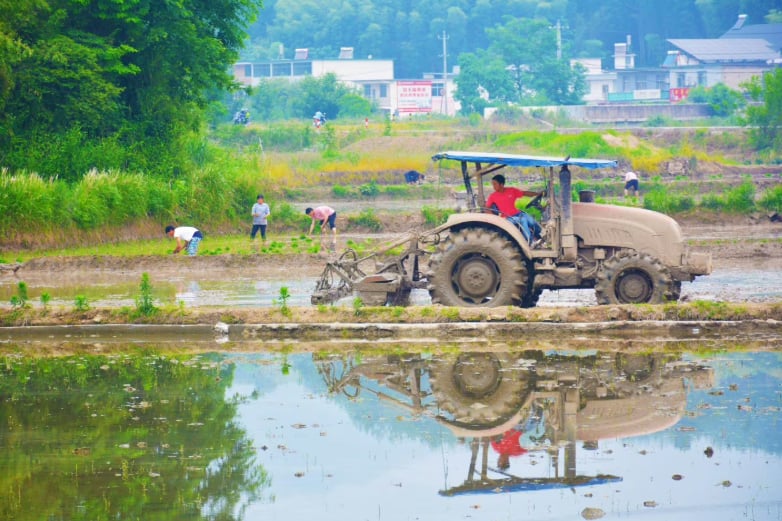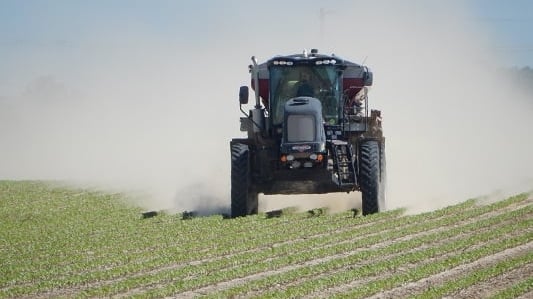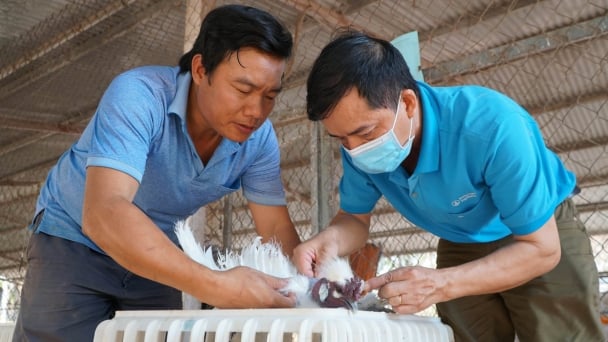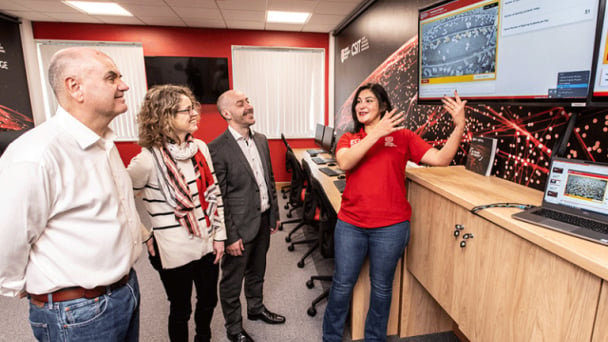May 14, 2025 | 08:22 GMT +7
May 14, 2025 | 08:22 GMT +7
Hotline: 0913.378.918
May 14, 2025 | 08:22 GMT +7
Hotline: 0913.378.918

Farmers till rice fields and transplant rice seedlings in Anqing city, Anhui province, China, June 4, 2023. Photo: CFOTO/Sipa USA.
Carbon credit registry Verra has suspended activities by four auditors related to carbon credit projects they vetted in China which claimed bogus emission reductions.
In an unprecedented move, TÜV Nord, China Classification Society Certification Company, China Quality Certification Center and CTI Certification will be prevented from auditing agriculture and forestry offsetting schemes on Verra’s registry. For German certification giant TÜV Nord, the measures will only apply to its operations in China. It is the first time Verra has taken such measures.
The auditors certified the activities of 37 programmes that aimed to slash planet-heating methane gas releases from rice fields across China, resulting in the generation of millions of carbon offsets. But Verra revoked the projects in August 2024 after a 17-month review found a string of integrity failures that the auditors had failed to identify.
Before this week’s suspension, Climate Home previously reported on ten of these projects closely linked to energy company Shell and revealed evidence raising serious doubts over whether any emission-cutting activities had been carried out on the ground at all.
Nearly 2 million worthless carbon credits produced by the projects – and partly used to offset emissions from Shell’s gas business – still need to be compensated.
As it axed the projects last year, Verra told the four auditors to produce a “strong” action plan that would prevent similar failures from happening again. But Verra said on Tuesday the responses had proved to be inadequate, prompting it to slap suspension measures on the certifiers.
The suspension will be lifted only if the auditors address the issues and meet Verra’s reinstatement requirements.
“This decision was not made lightly, but Verra’s commitment to integrity means upholding the highest standards of quality and trust, and maintaining market confidence must come first,” Justin Wheler, Verra’s chief program management officer, said in a written statement.
Voluntary carbon market standards like Verra rely heavily on external auditors to assess projects and their compliance with the rules, while the registry only gives the final stamp of approval. But auditors are picked and paid directly by project developers, something that, experts say, raises the risk of conflicts of interest.
Verra’s suspension will have immediate repercussions for projects that had contracted the services of any of the four auditors.
Verra said that it will not accept project registrations or requests to issue credits that rely on audits done by the certifiers affected by the measure. Those that have already undergone an audit carried out by suspended auditors will have to repeat the process with a new entity. A spokesperson for Verra told Climate Home at least 57 projects will be directly affected.
“While we recognize the impact of this suspension on affected projects, ensuring rigorous and credible validations and verifications is critical,” said Verra’s Wheler.
TÜV Nord is one of the world’s largest certification companies and, according to its website, it has vetted thousands of carbon credit projects both in the voluntary market and the United Nation’s Clean Development Mechanism. Climate Home has approached the company for comment.
China Classification Society Certification Company, China Quality Certification Center and CTI Certification are among China’s biggest certifiers of products and services, including emission reduction programmes.
Meanwhile, Verra has still been unable to obtain compensation for the 1.8 million worthless credits generated by ten rice farming projects that Shell directly supported in China. As Climate Home previously reported, the energy giant abandoned the projects soon after being informed that the sham offsets would need to be paid back.
The carbon credit registry sanctioned the project developer Hefei Luyu after the Chinese company failed to reply to Verra’s emails and compensate for the credits. But, in contrast, Verra has not taken any action against Shell – the world’s largest buyer of carbon offsets.
Shell used at least half a million credits produced by the Chinese rice farming projects to claim that shipments of liquefied natural gas (LNG) sold to clients were “carbon neutral”.
climatechangenews

(VAN) The international conference titled Carbon Market: International experiences and recommendations for Vietnam was successfully held recently in Ho Chi Minh City.

(VAN) According to the Project on rearranging provincial and communal administrative units, in 2025, the country will have 34 provinces/cities, 3,321 communes, wards, and special zones, and no district-level organization.

(VAN) The vice president of fertilizer with Stone X Group says the Trump administration’s tariffs are impacting fertilizer markets.

(VAN) Resolution 57 offers Vietnam a significant opportunity to narrow the global genetic technology disparity and convert its extensive genetic resources into commercial advantages.

(VAN) The Ministry of Agriculture and Environment will prioritize the implementation of five core and breakthrough solutions in science and technology, in addition to the seven groups of tasks identified in Decision No. 503.
/2025/05/09/2422-2-131218_985.jpg)
(VAN) The Prime Minister has issued an official telegram assigning relevant units to research the plan of purchasing and temporarily stockpiling some agricultural products at risk of price decline during peak harvest time.

(VAN) Traditional welfare assessments struggle to keep pace with farms housing up to 50,000 birds per house, prompting SMART solutions to augment traditional human observation and subjecting scoring.